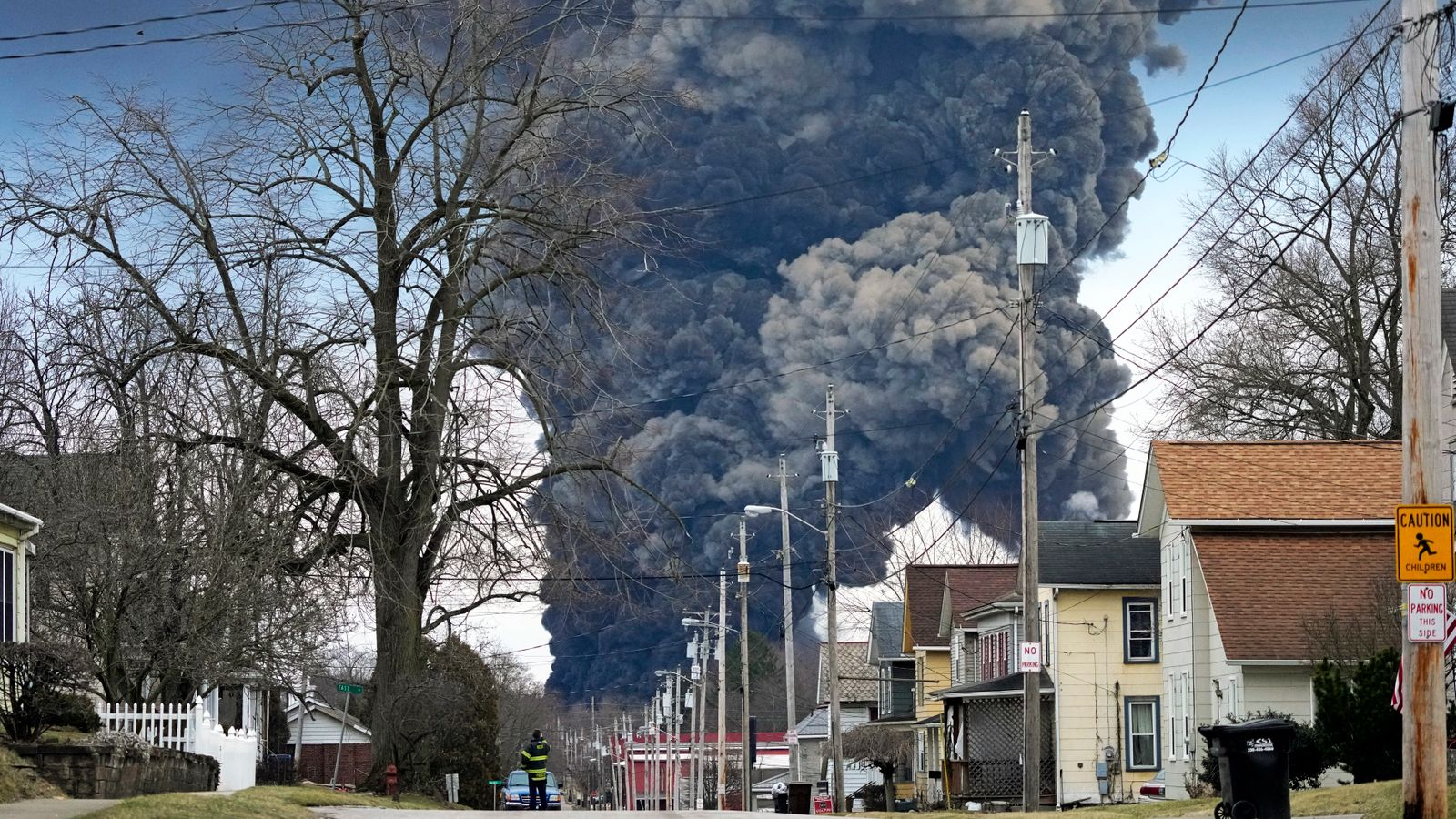Norfolk Southern’s $310 Million Fine for East Palestine Derailment
Residents of East Palestine, Ohio, are still reeling from the aftermath of the Norfolk Southern train derailment that occurred last year. The Environmental Protection Agency (EPA) and Norfolk Southern have reached a settlement of $310 million over the incident, which left the town contaminated with toxic chemicals.
The $310 million settlement is just a fraction of the $600 million approved by a federal judge for a class-action lawsuit brought by residents against the railroad company. The National Transportation Safety Board (NTSB) is set to release its final report on the accident soon, giving residents a short window to decide whether to opt out of the class action settlement.
Despite Norfolk Southern reporting billions in profits, the company agreed to pay the EPA $235 million for cleanup costs, with a meager $15 million allocated for a community health program. The derailment involved 38 cars, 11 of which were carrying hazardous materials that led to a controlled detonation of vinyl chloride, a highly toxic chemical.
Residents reported serious health issues, and environmental groups found over 45,000 animals killed as a result of the spill. The long-term effects on residents remain unknown, with concerns about potential health risks lingering.
Residents Speak Out About the Derailment
Residents living near the derailment site have expressed concerns about ongoing health issues and the lack of accountability from Norfolk Southern. Many continue to suffer from symptoms such as dizziness, headaches, and shortness of breath, with worries about potential long-term health implications.
Christina Graves, a resident living close to the crash site, described the scene as life-changing, with fears about the safety of her grandson and the once idyllic rural property now tainted by the disaster. Linda and Russ Murphy echoed similar sentiments, highlighting the ongoing physical and mental toll the derailment has taken on their well-being.
Government Oversight Failures Revealed
Recent revelations about the delayed deployment of an advanced aircraft equipped to detect toxic chemicals have raised questions about the government’s response to the derailment. The ASPECT aircraft, which could have identified hazardous materials early on, was not utilized until days after the incident, raising concerns about missed opportunities to mitigate the environmental and health impacts of the disaster.
The failure to deploy the aircraft in a timely manner and the lack of sensor utilization have sparked criticism from experts, pointing to systemic issues in responding to such incidents. The accountability and transparency of both Norfolk Southern and government agencies have come under scrutiny, with residents and environmental groups calling for stricter regulations and oversight to prevent similar disasters in the future.


















